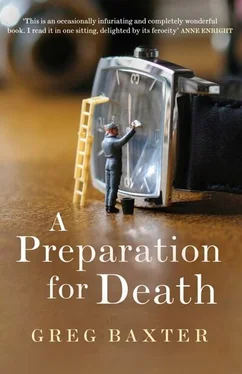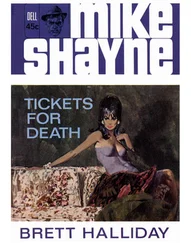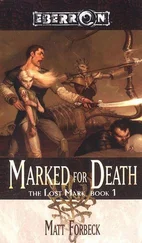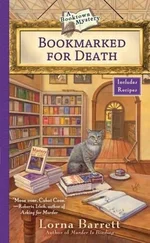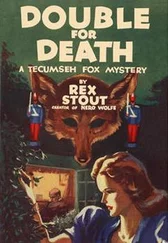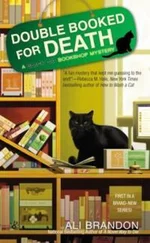There is nothing to be seen in Connemara that Robinson has not studied; no inch of earth he has not hiked across. I know of no project like his — you would struggle to name it. I teach a few of his essays. His mission is, deceptively, a humble one, one that has no glory-seeking: he digs in the earth for stories; he walks; he talks to locals; he has arguments with himself. Like Augustine, he works from awe and modesty.
I do not fear influence; I fear redundancy. In Connemara I keep Robinson’s mastery of the place near me. I learn how to observe what he observes. I learn how the landscape wears invisible dimensions: the geological forces, local mythology, the self, the historic. I learn how geography confers consciousness. I try to appreciate death. These things emerge in my mind as one entity, a mood, and if I sit very still I will have it all to myself.
The assumption I always make is that a few days away from the city, without the burden of work, will unleash great productivity in me, or that something I may have struggled with will become illuminated. I feel that I am bound for deep peace. No matter how many times I disprove this theory, I am seduced by it. On the morning of the second day, while Clare slept, I put on some warm and comfortable clothes, set up my computer, made a pot of coffee, and opened a blank page. After twenty minutes, I found myself cutting my toenails. I like to cut an edge and pull slowly across, revealing some of the quick, and when I am done with all ten, I air them out, and press them against the floor. After an hour, with nothing done at all, not a sentence, I was sitting on the floor in a corner, wishing I were dead. A little while later I began — as I do when all hope of writing is lost — hitting myself on the forehead with a closed fist. It is a punishment, but also an attempt to exhaust myself. I have always been like this. The fact that I cannot rid myself of such panic — such vanity — is as distressing as the panic itself, as distressing as the fact that it bothered me that Fielding did not like my essays, even though I proclaimed, in those essays, not to care if they were liked or not. It does me no good, I suppose, to declare that my past is behind me; but I like to think that if I confess, I will be the only one left who believes my own lies. Publicly I have a high opinion of myself. One learns this behaviour — this self-deception — or else one sleeps on the street. But privately I think there is no one more abject, more devious, more insecure, more envious, more desiring of approbation. These are my weaknesses, and in my day-to-day life I conceal them, because I cannot defeat them. I am as much my weaknesses as I am my strengths. But to conceal them here, to myself, would be insanity. So I betray them. I hand them over like spies. I give up their identities. I have them running through the streets of a great dark city. They are chased down blind alleys and assassinated. I do not write because I am honest; I write because I am dishonest.
On the Friday, Clare rose early to leave for a wedding in Westport. I had that day and most of the next to myself, and no car. I could do nothing in the cottage. I read a few more of Robinson’s essays, but not deeply. The two dozen books I’d brought, as though I were going away for six months, became a distraction. I had a late lunch. I read and marked some stories by students. I edited something I’d been writing.
The weather, after a sunny and warm Wednesday and Thursday, was slightly melancholy, and the forecast was for heavy wind and rain. If I was ever going to walk up Bengooria, it was then or never, and I had already left it late — Letterfrack National Park closed at five-thirty, and the next day Clare and I were driving to Roundstone, because the Robinson essays I’d read were about that part of Connemara. To get to the hill I had to walk along a narrow, bending road with no hard shoulder, no way to escape traffic, and it was probably the peril of the road that had delayed me. I set out. I brought the essays and stories I was teaching in class the next week — Montaigne’s ‘On Some Verses of Virgil’ and Bruno Schulz’s ‘The Street of Crocodiles’ and ‘Cockroaches’. It was about three p.m.
If two cars had come speeding from opposite directions, I would’ve got squashed. I hurried around bends, and when cars did come, I hopped into the other lane, or jumped on a stone wall overlooking a steep drop, or into a thicket. The wind was already gusting, but the rain hadn’t started. Over the sea, to the west, the sky was bright and clear. Behind Bengooria, it was black.
No cars passed, either coming or going, on the long, but not perilous, walk from the main road to the park entrance. I was dressed in jeans and a jacket, and some hiking boots I bought three years ago and had worn once or twice. I wanted to get as high as possible in the short time I had, so I set a brisk pace, and overtook an older, German-speaking couple. I reached the lower summit — to call it this is misleading; it’s only a point at which the real hike begins — just before five. There was no way I would get to the top, and anyway, the wind was now shrieking down the mountaintop, and the black clouds were approaching. Rain began to fall. Another group of tourists had reached the lower summit from the opposite direction. They were dressed in waterproof hiking gear, and laughed at me in Italian — I was already getting soaked. I stopped for a moment to gather the view. I remember the sky was still clear above the sea, and the water was like a large flash of light. Behind me, now that I was very close, the rock peak of Bengooria seemed large indeed.
In Letterfrack, at a pub, I had a few pints and seafood chowder. When I go to the West, I only eat seafood chowder: I don’t mind that I look like a fool. I also drink Guinness. I embrace the tourist in me. While I sat, I read and annotated the Schulz piece. Schulz wrote the stories in The Street of Crocodiles as love letters. I think that is magnificent, and that is how I read them. That is how I shall write stories, if I ever go back to fiction. Then I read the Montaigne, as much as I could before I had to return. I had to leave before it got dark, or I’d be killed on the road for certain. Clare had given me a journal for my birthday, and I filled ten pages of it, copying lines from the essay. Montaigne’s humility is infinite. I write his lines not to study or admire, not necessarily, but to tear the last sinews of self-love from my body, to obliterate pretence, to give up ambition. And in that state my own thoughts flow toward nothing, carry nothing of significance, and go where they please.
On the walk back to the cottage, I stepped off the road to a beach of pebble and stone that ran alongside it. It seemed possible that it would bring me most of the way back. It was raining heavily, and nothing of the bright sky was left. I looked behind me: Bengooria was invisible. The water was choppy, swift, swelling. I could not help but think again of imminent fatherhood, but it was not the tide that made me think of it. It was simply the way the world constantly resists man’s attempt to make himself profound. I walked a few hundred metres down the beach. I saw a pier, another few hundred metres in the distance, where I could rejoin the road, but there the tide had come all the way in. There was no way I could scale the wall back. It was too steep and overgrown. I went all the way back to where I had stepped off the road.
9. I Saw a Dead Man on My Lunch Break
Tuesday morning, 14 October
I have been up since four a.m. The more tired I get, the less I want to close my eyes. I dug one of my favourite books out — I have no bookshelves, so I have stacked about two hundred books in seven or eight tall piles in my living room. Clare — who has moved in so we can save money — came up for a bowl of cereal, and each mouthful, to my tired mind, was like a bulldozer scooping up stones. This is someone who weathers my snoring, who is eating food for my child inside her. I feel monstrous for being annoyed. I went outside in the cold and closed the door. I observed my sleepy street — still dark, still waiting for the clocks to change.
Читать дальше
